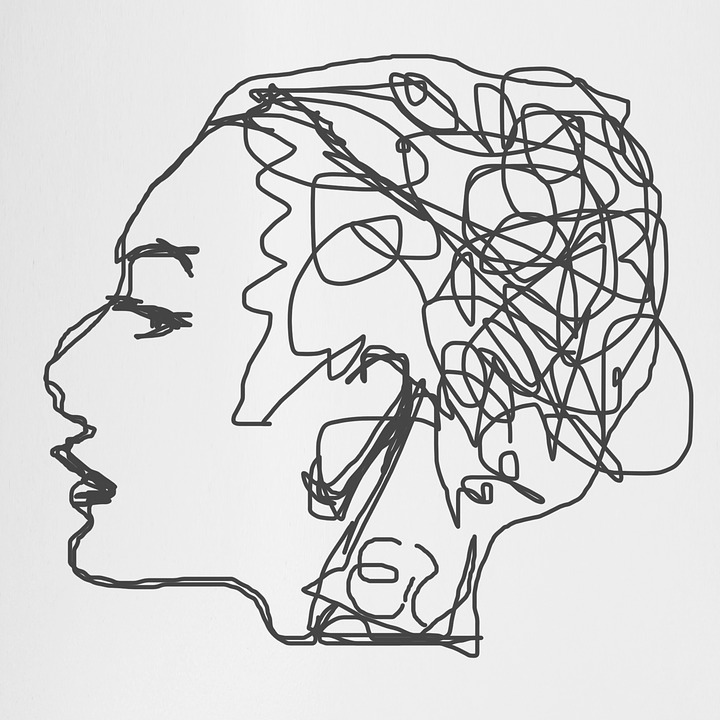

Roeland Voskens

Ingmar Visser
Roeland Voskens’ (Social Psychology) question
Dear Ingmar,
In a recent article in the NRC, it is claimed that due to the steady increase in student enrollment numbers at Dutch universities, we might end up graduating too many people. My question then would be: do you think a similar argument applies to psychology degrees? So will we end up with too many people with a degree? Will this cause “degree-inflation”, and what would that mean (less demand for graduates in the marketplace, less training for undergraduates because of the need to cater to more students with similar means, perhaps both)?
Roeland
Ingmar Visser’s (Developmental Psychology) answer
Dear Roeland,
Thanks for this very interesting question! The background question in the NRC article is: will we graduate too many students at our institutions? This can be answered at many different levels. Broadly speaking, having had a university education improves peoples’ lives enormously by providing them with an independent outlook on the world, a better paying job and generally more health and wealth. Even more broadly, the increase in general educational level in our societies coincides with a huge increase in general welfare. Between 1970 and 2010 entry into tertiary education has increased from 20% to above 60% in the Netherlands. During the same period per capita GDP has increased three-fold. The site ourworldindata.org provides these numbers and these get more extreme if you consider them on longer timescales. Many scholars and others have drawn attention to these sorts of numbers, I particularly enjoy contributions by for example Steven Pinker and Rutger Bregman.
The general success of education also holds true for Dutch universities. Their quality of education is recognized throughout Europe, and the world, judging by both rankings and the number of applicants for our programs. This is also in particular the case for our own psychology program, the number of applicants has risen to 2400 last year – 1600 from outside of the Netherlands –, and there are already indications that last years’ records will be broken this year.
There is no indication whatsoever that people with a university degree have a hard time finding jobs (although there are large differences between degree programs). For psychology graduates, important job market statistics – average income, time it takes to find a job – are relatively good and constant in past decades even though the total number of graduates has increased in recent years. Even if there was some effect of ‘too many graduates’, e.g. in the form of less demand for graduates in the workplace, this would not necessarily be a bad thing – if the incomes of plumbers and surgeons were a little closer to each other this would probably lessen the burden on study choice and increase overall wellbeing. It seems to be the case that at least some people just enter higher education because of the expected income – whereas they may more be better off in a different kind of environment.
There is also a second kind of degree inflation you mention – being that we cannot maintain the same quality of education because of increasing student numbers and budgets that do not match this increase. That indeed is a serious threat. However, I am optimistic that the tide is with us in this respect – there is a general re-valuation of common goods, which now needs to be translated into political action, we will hopefully see results soon!
Ingmar
Ingmar Visser’s question is for Steven Scholte (Brain and Cognition)
Dear Steven,
Artificial intelligence is once again on the rise after what is called the AI Winter. Psychology and AI are of course closely intertwined and share a common interest in understanding the mechanisms underlying intelligent behavior. How can current developments in AI deepen our understanding of human intelligence? Is there a limit here or will AI be truly intelligent this time around?
Ingmar

Roeland Voskens’ (Social Psychology) question
Dear Ingmar,
In a recent article in the NRC, it is claimed that due to the steady increase in student enrollment numbers at Dutch universities, we might end up graduating too many people. My question then would be: do you think a similar argument applies to psychology degrees? So will we end up with too many people with a degree? Will this cause “degree-inflation”, and what would that mean (less demand for graduates in the marketplace, less training for undergraduates because of the need to cater to more students with similar means, perhaps both)?
Roeland

Ingmar Visser’s (Developmental Psychology) answer
Dear Roeland,
Thanks for this very interesting question! The background question in the NRC article is: will we graduate too many students at our institutions? This can be answered at many different levels. Broadly speaking, having had a university education improves peoples’ lives enormously by providing them with an independent outlook on the world, a better paying job and generally more health and wealth. Even more broadly, the increase in general educational level in our societies coincides with a huge increase in general welfare. Between 1970 and 2010 entry into tertiary education has increased from 20% to above 60% in the Netherlands. During the same period per capita GDP has increased three-fold. The site ourworldindata.org provides these numbers and these get more extreme if you consider them on longer timescales. Many scholars and others have drawn attention to these sorts of numbers, I particularly enjoy contributions by for example Steven Pinker and Rutger Bregman.
The general success of education also holds true for Dutch universities. Their quality of education is recognized throughout Europe, and the world, judging by both rankings and the number of applicants for our programs. This is also in particular the case for our own psychology program, the number of applicants has risen to 2400 last year – 1600 from outside of the Netherlands –, and there are already indications that last years’ records will be broken this year.
There is no indication whatsoever that people with a university degree have a hard time finding jobs (although there are large differences between degree programs). For psychology graduates, important job market statistics – average income, time it takes to find a job – are relatively good and constant in past decades even though the total number of graduates has increased in recent years. Even if there was some effect of ‘too many graduates’, e.g. in the form of less demand for graduates in the workplace, this would not necessarily be a bad thing – if the incomes of plumbers and surgeons were a little closer to each other this would probably lessen the burden on study choice and increase overall wellbeing. It seems to be the case that at least some people just enter higher education because of the expected income – whereas they may more be better off in a different kind of environment.
There is also a second kind of degree inflation you mention – being that we cannot maintain the same quality of education because of increasing student numbers and budgets that do not match this increase. That indeed is a serious threat. However, I am optimistic that the tide is with us in this respect – there is a general re-valuation of common goods, which now needs to be translated into political action, we will hopefully see results soon!
Ingmar
Ingmar Visser’s question is for Steven Scholte (Brain and Cognition)
Dear Steven,
Artificial intelligence is once again on the rise after what is called the AI Winter. Psychology and AI are of course closely intertwined and share a common interest in understanding the mechanisms underlying intelligent behavior. How can current developments in AI deepen our understanding of human intelligence? Is there a limit here or will AI be truly intelligent this time around?
Ingmar



